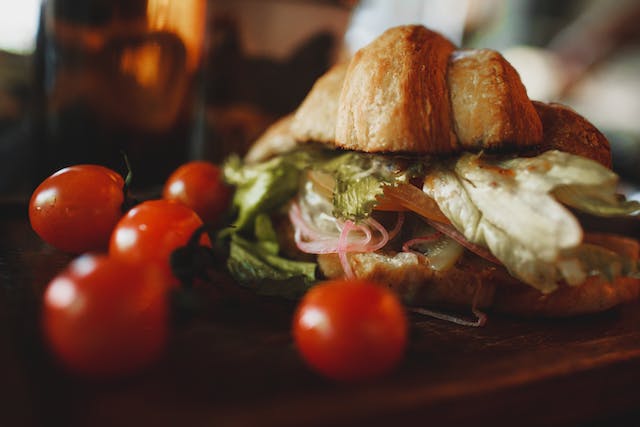Welcome to the thrilling realm of vegan cooking! As a seasoned vegan pro or as one who is new to cruelty-free lifestyle, this comprehensive guide will help you in discovering the best recipes online. From mouth-watering and simple meals to dispel myths about veganism, everything can be found here. So hit the flipper, stimulate your taste buds and do something good for yourself and nature by enjoying delicious cruelty-free dishes – all with zero animal products. Let’s delve into it and discover the beautiful vegan culinary world, together.
What is a Vegan Diet?
Going vegan is not merely a temporary fad in food preferences; it is about compassion and sustainability. In simple terms, veganism is about avoiding the consumption of any products derived from animals such as meat poultry sea food dairy eggs and honey.
It means staying away from animal products – consider leather merchandise or cosmetics with components derived from animals. Vegans adopt a lifestyle involving plant-based substitutes that are not only compassionate towards animals but also healthier for Earth.
On a vegan diet, you can feast on fruits vegetables grains legumes nuts and seeds. These nutrient-dense foods supply important vitamins like B12 (mostly supplemented), minerals such as iron and calcium(can easily be obtained from plant sources) , also fiber that meant to improve digestion and overall health.
More and more people lead a vegan lifestyle for ethical reasons – they believe all living beings deserve respect and compassionate treatment. Some choose this mode of eating for ecological motives because animal rearing has been associated with deforestation and the emissions of greenhouse gases.
Be it driven by Ethics or inspired to get range of health benefit while minimizing your carbon foot print – going vegan will open up a new world in Cooking.
Benefits of a Vegan Diet
A vegan diet has a lot of benefits tied to it. One of the main benefits is better overall health. A balanced vegan diet when well organized can offer all the nutrients required like vitamins, minerals and antioxidants as well being free from saturated fats and cholesterol.
Also, studies indicate that a vegan diet may help decrease the chances of getting chronic diseases including heart disease, high blood pressure level type 2 diabetes and some types of cancer. Studies have shown that plant-based diets are associated with lower levels of inflammation in the body and healthier gut.
Another benefit is weight management. Many plant foods are naturally low in calories but rich in fiber that promotes feelings of fullness and prevents overeating. This is useful for those that want to be slim or maintain their good weight.
By avoiding animal products in your diet, you help save yourself as well the environment surrounding. Animal production is resource-consuming, and it has a high impact on the emission of greenhouse effect as well as deforestation. By choosing plant-based options, you can also reduce your carbon footprint and encourage sustainable food production practices.
Adopting a vegan lifestyle reflects many people’s principles of treating animals properly, ethically. People who decide not to consume or use animal products, live more compassionately towards animals.
There are many advantages to being a vegan – good for personal health, as well as promoting environmental sustainability.
Common Misconceptions about Veganism
There are several myths associated with veganism that often prevents people to even think about this lifestyle. Let’s dispel some of the prevalent myths and reveal the truth.
The most common misconception is that a vegan diet does not provide enough protein. Besides, taking varying quantities of plant protein sources during the day will guarantee adequate intake.
Another fallacy is that vegans have an insufficient supply of basic nutrients such as calcium and iron. But these nutrients can adoptably be provided by ingestion of fortified vegetable milk, leafy vegetables such as kale and spinach to obtain calcium or beans and lentils for iron.
One of the myths one ever hears is that being vegan means missing out on good food. On the other hand, with thousands of online resources all focusing on providing enticing vegan recipes you will never lack a delicious meal to satisfy your appetite.
Then, gradually make your way into having a vegan diet. For instance, incorporate more fruits and vegetables into your meals along with whole grains legumes nuts and seeds. Transform your dishes by experimenting with different flavors and ways of cooking.
It’s also necessary to seek help during this transition. Â contact other vegans over online communities, local groups who can guide you and tell their stories. Finding someone to ask for advice or learn new recipes can make the process so much simpler.
Additionally, think about meal planning as it assists in knowing that you have healthy options readily available for the whole week. Stock up on these basics such as lentils, beans, rice etc and also different spices that are basis of many tasty plant-based meals.
Finally and most importantly – be nice to yourself! Keep in mind that making a transition to any new manner of eating takes time and patience. If you make a mistake or if it is tough at first don’t punish yourself; every step contributes to promoting positive changes in terms of your health and the environment.
When you do all these and continue to be motivated along the way, starting a vegan diet will not seem so daunting thus making it easier for one to easily embrace almost everything that comes with this program!
Delicious and Easy Vegan Recipes
When it comes to vegan cooking, there are many mouthwatering recipes that are not only delicious but also easy to prepare. If you are a lifelong vegan or just embarking on your plant-based diet, this collection of recipes will impress your taste buds and have you return again and again.
One of the most well-known vegan recipes is chickpea curry. This dish is full of proteins and flavors; it includes soft chickpeas cooked with some aromatic spices such as cumin, turmeric or coriander. Serve this dish, over fluffy basmati rice or eat it with some warm naan bread and you will have a very satisfying meal.
If you want something less heavy try a quinoa salad that’ll lighten up your taste buds. Just sauté some quinoa as directed on the package and mix it with colorful veggies such as bell pepper, cucumber or cherry tomatoes along with fresh herbs like parsley of cilantro. Drizzle with a zesty lemon vinaigrette for an additional kick.
Animal product-free comfort food classics could include a fantastic lentil soup or mushroom risotto. Lentils are rich sources of fiber and protein while mushrooms enhance the taste to any meal. These recipes are not only healthy to have but also so comforting for a cold day.
And what about desserts? There are so many vegan treats that will satisfy your sweet hunger without harming to what you have been doing diet-wise. From decadent chocolate avocado mousse to moist banana bread made not with eggs or dairy but almond milk – the options are endless!
Regardless of whether you’re looking for fast weeknight meals or WOW dishes to impress guests during your next gathering, there is no lack of mouthwatering vegan recipes readily available online. So tie your apron and prepare yourself to enter the plant-based cooking world, I bet you won’t regret doing it!
Considerations in a Vegan Diet
A well balanced diet including a vegan one, requires proper nutrition. While a properly planned vegan diet can supply all the required nutrients, there are some points to note.
One must also see that protein intake was sufficient. Sources such as legumes, tofu tempeh and seitan are plant-based sources that can meet your protein needs.
Vitamin B12 is very critical since it mostly comes from animal products. Vegans get this nutrient from fortified foods or supplements.
Moreover, being aware of iron levels is also necessary because plant-based iron (non heme) isn’t as well absorbed as that from animal sources. Consuming foods rich in iron such as dark leafy vegetables and legumes together with other sources of vitamin C can improve its absorption.
Another nutrient that may need special attention in a vegan diet is calcium. Fortified non-dairy milks and yogurts, tofu made with calcium sulfate, kale and broccoli are good plant sources.
Finally but also importantly, omega-3 fatty acids are essential for general health. Vegans can find these beneficial fats in flaxseeds chia seeds or walnuts, and among algae-derived supplements such as DHA EPA.







